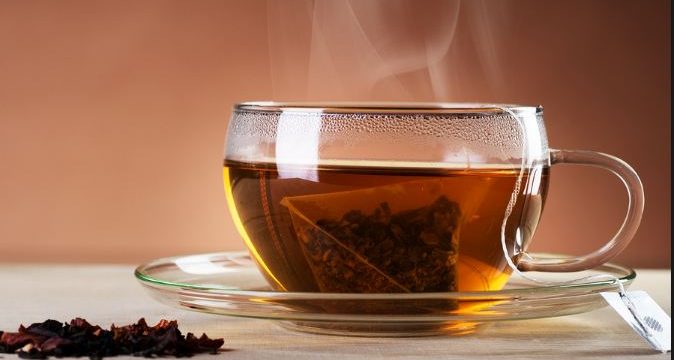By: Maria Cohut
Hot tea is a staple beverage in winter time; it can help to keep us warm and soothe sore throats. It can give us that energy boost in the morning or help to relax us in the afternoon. However, a new study suggests that drinking hot tea may have serious negative consequences for some of us.
Across the world, hot tea is a much-loved drink; Euromonitor International estimate that around 2.9 million tons of tea were consumed in 2016 alone.
This comes as no surprise, seeing that teas are tasty and can bring many health benefits, often brought about by the antioxidant effects of compounds such as polyphenols.
However, a recent study from Peking University in Beijing, China, has found that the temperature at which tea is consumed could affect health — particularly in certain groups already at risk of negative health outcomes.
Lead study author Jun Lv, a doctoral student from Peking University’s Department of Epidemiology and Biostatistics, found that the consumption of hot tea correlates with the onset of esophageal cancer.
According to the World Cancer Research Fund International, esophageal cancer is the eighth most common type of cancer worldwide.
In the United States, there were an estimated 16,940 new cases of esophageal cancer in 2017, while in 2014, approximately 45,547 people had this type of cancer.
According to Lv, drinking hot tea on a regular basis is linked to esophageal cancer in people who also smoke and drink alcohol habitually, thus pointing to a complex favorable conjuncture for the development of this disease.
Lv and colleagues conducted their research as part of the National Natural Science Foundation of China and the National Key Research and Development Program. The study’s findings were published in the journal Annals of Internal Medicine.
A fivefold increase in risk of cancer
Lv and team studied the link between drinking tea at very high temperatures and the development of esophageal cancer in the Chinese population; China is not only the number one consumer of tea, but it is also a country with one of the highest incidences of this type of cancer.
According to the researchers, Chinese men in particular are most likely to be keen on not only hot tea, but on cigarettes and alcohol, as well.
The combination of tobacco, alcohol, compounds found in tea, and the negative effects of drinks served at very high temperatures is likely to attack health eventually, Lv and colleagues suggest.
The researchers monitored the health of participants in the China Kadoorie Biobank study, whose aim is to collect data on the development of chronic diseases — including heart diseases, cancer, and diabetes — in China.
To ensure the consistency of their results, the scientists excluded participants who had an existing diagnosis of cancer, as well as those who had cut down on tea, alcohol, and cigarettes. In the end, they analyzed the data sourced from 456,155 adult participants aged between 30 and 79.
All these participants’ health developments were then followed-up for a median period of 9.2 years. During this period, 1,731 participants were diagnosed with esophageal cancer.
Lv and team uncovered a positive correlation between drinking burning-hot tea, regular alcohol intake, and smoking and a higher risk of esophageal cancer.
Those who engaged in all three of these habits showed a fivefold increase in the risk for this type of cancer compared with their peers who did not drink tea at high temperatures, drink alcohol, or smoke cigarettes.
Individuals who only drank hot tea — and who did not drink alcohol or smoke — did not have a higher risk of esophageal cancer either, suggesting that the concerted effect of those three behaviors was a major risk factor.
Based on the findings, Lv and colleagues advise people to choose their habits carefully and, if they find it challenging to give up their daily drink or cigarette, the researchers suggest that it’s best to avoid drinking tea at very high temperatures. They conclude:
Findings suggest that abstaining from hot tea might be beneficial for preventing esophageal cancer in persons who drink alcohol excessively or smoke


